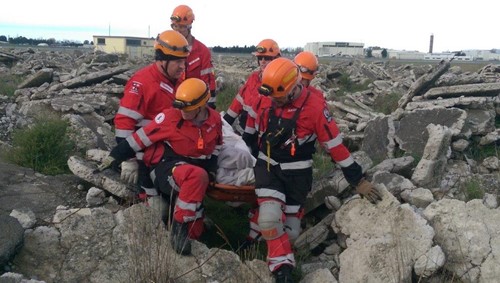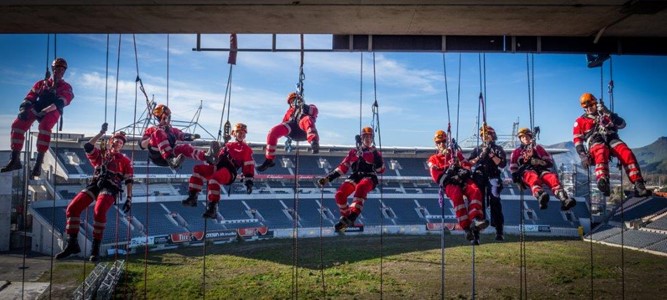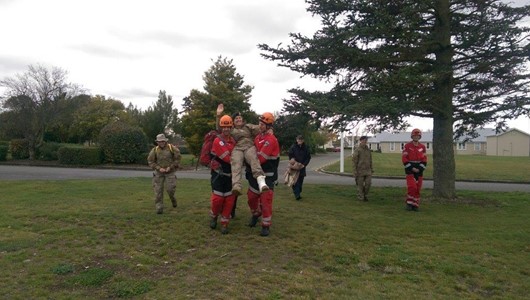- Ready for anything
- Hazards
- Your district
- Canterbury CDEM
The R.A.T.S team are a multi-disciplinary team which enables them to provide support to a number of different incidents.
The essence of the R.A.T.S philosophy is to be a versatile unit that can be called upon to help fill the gaps created during events that overwhelm normal day to day operation of emergency services.
Below is an overview of some of the core specialities held by R.A.T.S volunteers.
Light rescue or general rescue involves skills and techniques to assist people in the event of a Civil Defence emergency when the emergency services are unable to assist and the likelihood and risk of death to people and damage to property on a large scale is high. These techniques, as well as disaster medicine, triage and incident management, form the basis of all R.A.T.S training.
Light rescue supports the Fire and Emergency New Zealand (FENZ) Urban Search and Rescue (USAR) system.
In May 2003 R.A.T.S became the first registered Response Team (NZ-RT1). This requires teams to follow certain Standard Operating Procedures, training foundation and base equipment. The registration ensures that all rescue teams in New Zealand operate in the same way and have similar resources.
The R.A.T.S have high expectations with regard to their performance in general rescue. This is the foundation of all our work and we pride ourselves on being experts at this skillset. Key to our success in this area is a team of well-trained people who know exactly what their roles are, supported by strong leadership capable of making decisions quickly and as a disciplined team which ensures focus on the task in hand.
All our team members are expected to have leadership qualities to enable them to take untrained volunteers with them to help with general rescue efforts in mass casualty events.

The R.A.T.S personnel specialise in rope rescue. Rope rescue can be defined as rescue from heights above 3 metres. In Christchurch this typically means high rise buildings and other structures (construction cranes, silos etc) and recreational facilities found in close proximity to the city, such as the Port Hills.
The team extensively studies overseas techniques, equipment and data to develop systems that maximise rescuer and patient safety while performing effective rescues. The team has standard operating procedures with clear responsibilities and lines of command.
The R.A.T.S are able to provide specialist rope rescue support to statutory emergency services in the Christchurch area. With the Port Hills often used by the general public for recreational activities including rock climbing and abseiling as well as the many tracks and roads, this makes the team a valuable outdoor safety resource.
During a declared Civil Defence emergency, the rope rescue skills of the R.A.T.S may be used to help emergency services enable retrieval and rescue of trapped people - both above and below ground level.

There isn't much point in having the best technical rescue skills if, when you reach the victim, you have no idea how to treat their injuries.
Rescue is about getting people out of dangerous environments and more often than not these people will be injured. We must have the resources and skills to provide a sound level of basic first aid.
The R.A.T.S generally have some medical professionals working in a voluntary capacity as part of the makeup of the team. Currently the team has a doctor, a student doctor, several physiotherapists, a nurse and St John ambulance volunteers.
At a minimum, all team members have a first aid qualification. Most team members have or are working towards having an advanced first aid qualification.
The team carries a good supply of basic medical equipment with focus on trauma, wound and fracture management tasks. When provided with a medical scope of practice the team may carry certain drugs to be administered by the team doctor.
The core objective is not to replace existing medical response structures but to make sure that the patients that are treated and dispatched from the frontline are given appropriate treatment and triaged to the correct medical facility with the right information about their condition.
